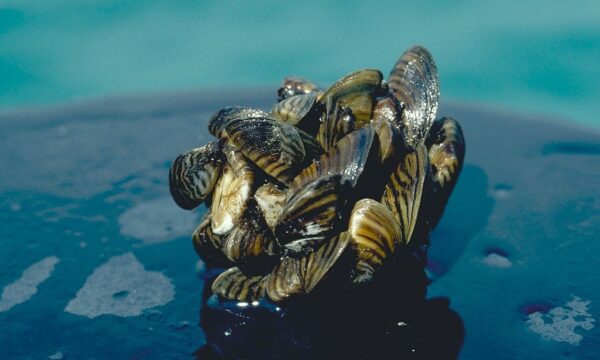Some of the species that are included in our open-access Invasive Species Compendium are well known to the general public, for example Japanese Knotweed. Others are more obscure, and I had never heard of the Asian Hornet, Vespa velutina, until I edited the datasheet about it earlier this year. I was therefore interested to hear an item about it a few days ago on the Today programme, one of the best-known programmes on BBC radio (you can listen to the item here).
The species originates from eastern Asia and was accidentally introduced to southern France about 10 years ago in a consignment of terracotta pots from China. It spread rapidly through France, soon reaching the stage where eradication was impossible, and into neighbouring countries. As it is a predator of honey bees, it is of serious concern to the beekeeping industry (where it is native, bees have some ability to kill hornets by surrounding them with a ball of bees and heating them to death, but European bees are much less effective at this). It can sting people badly too, although European populations are generally not very aggressive.
It is considered very likely that V. velutina will spread to the UK, either through accidental transport by humans or by flying across the English Channel (see here for a risk assessment). Eradication will only be possible if it is spotted promptly, and long-term management will also require knowledge of where it is present, so the public (especially beekeepers) are being asked by the Department for Environment, Food and Rural Affairs to look out for it and report any sightings to alert_nonnative@ceh.ac.uk. This request has been picked up by several parts of the UK media, including the Independent, the Daily Mail and even the local newspaper here in south Oxfordshire.
An information sheet describing how to recognise the species is available here; August and September are the peak months for V. velutina activity, so if you live in the southern part of the UK, or indeed anywhere else in western Europe, please look out for it!
Mark Palmer
Content Editor
CABI
3 Comments
Leave a Reply
Related News & Blogs
Countering the spread of the Asian hornet in Europe
A potentially game-changing approach used by CABI scientists in Switzerland could help populations detect Asian hornet nests and destroy them
25 August 2023






Reblogged this on Science on the Land and commented:
argylesock says… Here’s another threat to the honeybee (Apis mellifera). The Asian hornet (Vespa velutina) is now established in France and no doubt, it’ll soon reach the British Isles. The article I’m reblogging here includes info on how we can report any sightings of this very unwelcome insect.
[…] too, including the Asian hornet (Vespa velutina) which has become invasive in France, and which is expected to invade Britain soon. The post I reblog here is about experiments using Asian hornets and another kind of hornet to […]
[…] that is found at several sites around the UK, but subject to eradication efforts and the Asian hornet (Vespa velutina) which has yet to arrive in Britain but is spreading rapidly across France and […]